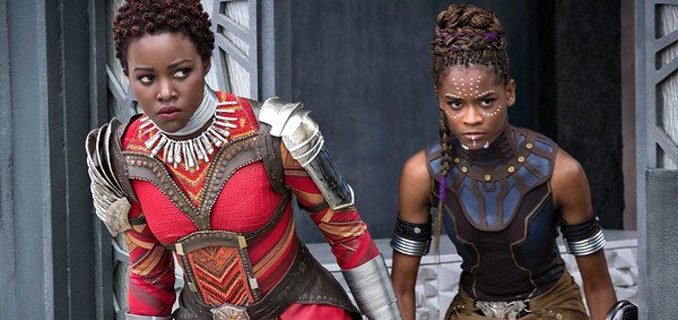
We don’t usually bother with multiplex fare, especially the increasingly dreary super-hero franchises. Besides, Ciao isn’t on Disney’s media invitation list. But for the most talked about and arguably most important film of the year, maybe we should have been.
Black Panther: What it all means
Consider this: A man called T’Chalia (Chadwick Bosman) becomes the supreme leader (by inheritance, there’s no democracy here) of a “hermit kingdom” in Africa called Wakanda. It’s as isolated and suspicious of the outside world as North Korea, except that it’s prosperous and technologically advanced, and its people are “happy”.
Maybe… But how would we know? The free media aren’t invited in to check, nor is anyone else. Its borders are sealed to everyone. As T’Chalia’s head of border security Peter Dutton (no sorry, his name is W’Kabi) explains, “If we take refugees, we inherit their problems.” Yes indeed, and bring in ethnic violence, congestion, pollution and higher house prices, just as Tony Abbott has warned. Hmmm…
Another man called Killmonger (Michael B Jordan) challenges T’Chalia and (briefly) usurps him. He wants to open up and allow the whole world to share Wakanda’s vast wealth and technology, and especially help black people everywhere escape poverty and oppression and live to their full potential. If Morgan Freeman had been a bit younger, surely he would have been given that role.
One of these two men is a hero – the titular “Black Panther”. And one is a villain. Guess which one?
Ok, so you know the answer is the reverse of what you might think. But Disney, true to its anointed and highly profitable role of creating fantasies, does allow T’Chalia, after defeating Killmonger, to come around and see his enemy’s point of view. But only in the epilogue – in an address to the UN that is both wishfully ridiculous and yet somehow absurdly optimistic and romantic. You’ll leave the multiplex happy, just as Disney has instructed.
Much will be written (and has already – its even been a cover story for Time) be about what all this means. The outlines of thousands of thesis are already being churned out on campus printers all over the world – about black empowerment and how the underclass and oppressed minorities never before represented as heroes in the media now have a voice and new hope. Hardly anyone will mention (especially not Time!) that this is all courtesy of a giant US multinational – the Disney Corporation, recently merged with Murdoch’s 20th Century Fox.
In the more dystopian and darker TV series Mr Robot, a similar entity is called Evil Corp, buts lets just leave that hanging there for now…
Not many will recall that back in the late 60s, a Black Panther was something other than a Marvel comic book character. The label then referred to someone who belonged to an insurrectionary movement that had the same aims as Killmonger. They were determined to overthrow the corporate world Disney represented and silence its media propaganda machine – with armed force if necessary. The Black Panthers were considered so dangerous to liberal democracy, they were ruthlessly hunted down, incarcerated and killed. But in 2018 their revolution has arrived, and it comes with a bucket-sized container of sugary coke and a huge serve of buttered popcorn.

Dispute resolution, Wakandian style
Much more could be said, particularly about the proactive role of women in Wakandian society. They hold most positions of power and its all-Amazon army is made up of what one character calls “Grace Jones–lookin’ chicks with spears.” But I’ll leave that fertile turf to the gender warriors. One thing interests me more: Far from the rural and backward idyll of underdevelopment and genteel native poverty that the Wakandians presents as their front to the world, the reality for its citizens was very different. True, we don’t see much of everyday life, but we do get glimpses of their super-advanced capital city. It’s very compact and looks like a lush version of modern Shanghai, all soaring gleaming towers and whooshing hover-trains. Sure, that’s stock-standard CGI, but very clearly its a dense urban society and everyone lives in crowded high-rises.
So for those who admire the Wakanian policy of shutting out the rest of the world and keeping outsiders from sharing their good fortune (One Nation, Tony Abbott, Inner West Council, Save Marrickville from Mirvac), and assume exclusion will mean an uncrowded low-rise urban paradise like (say) Haberfield or Mosman – Black Panther delivers us some news: It will be like Dubai.
M on now at Palace Central, Broadway, Burwood, Dendy Newtown and Rhodes. Best on a big screen, if possible.
Russell Edwards
